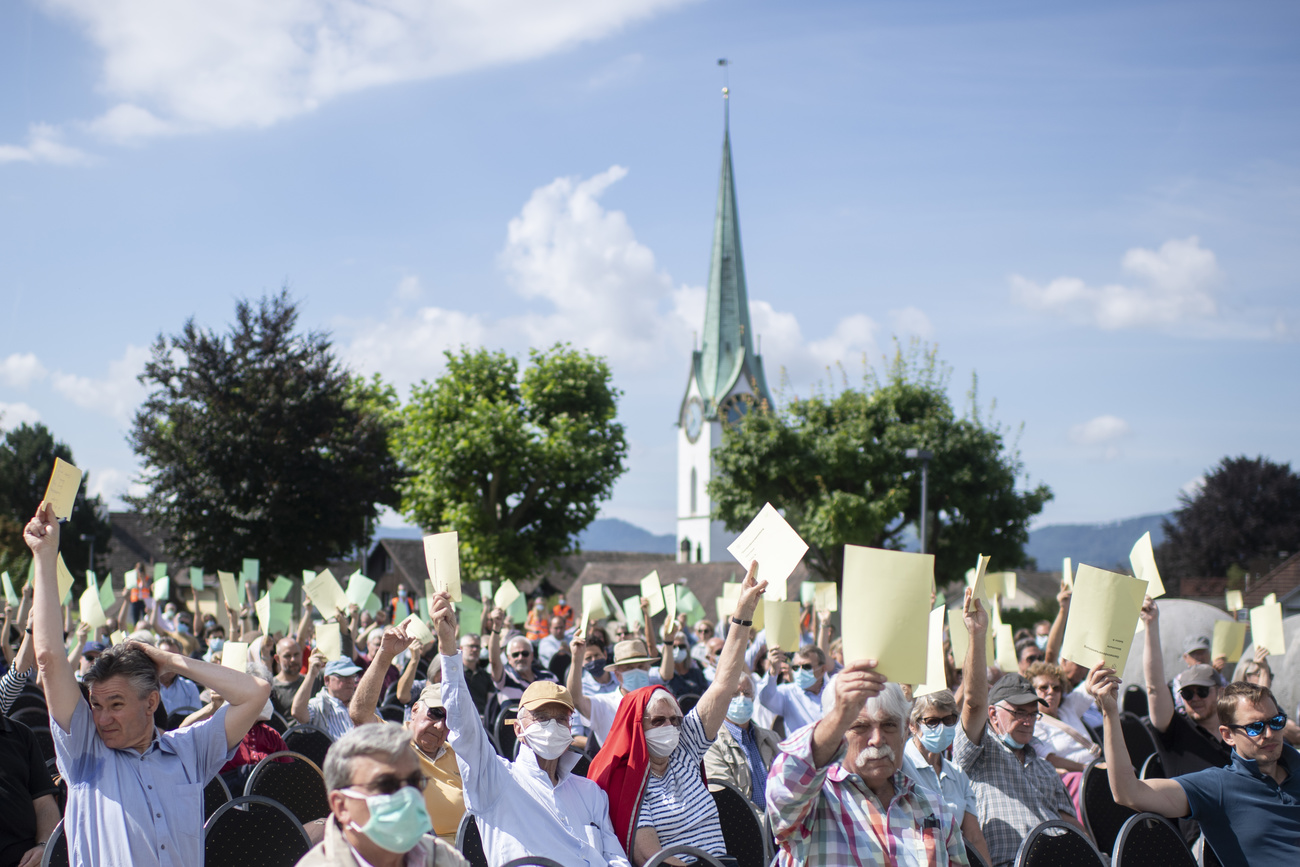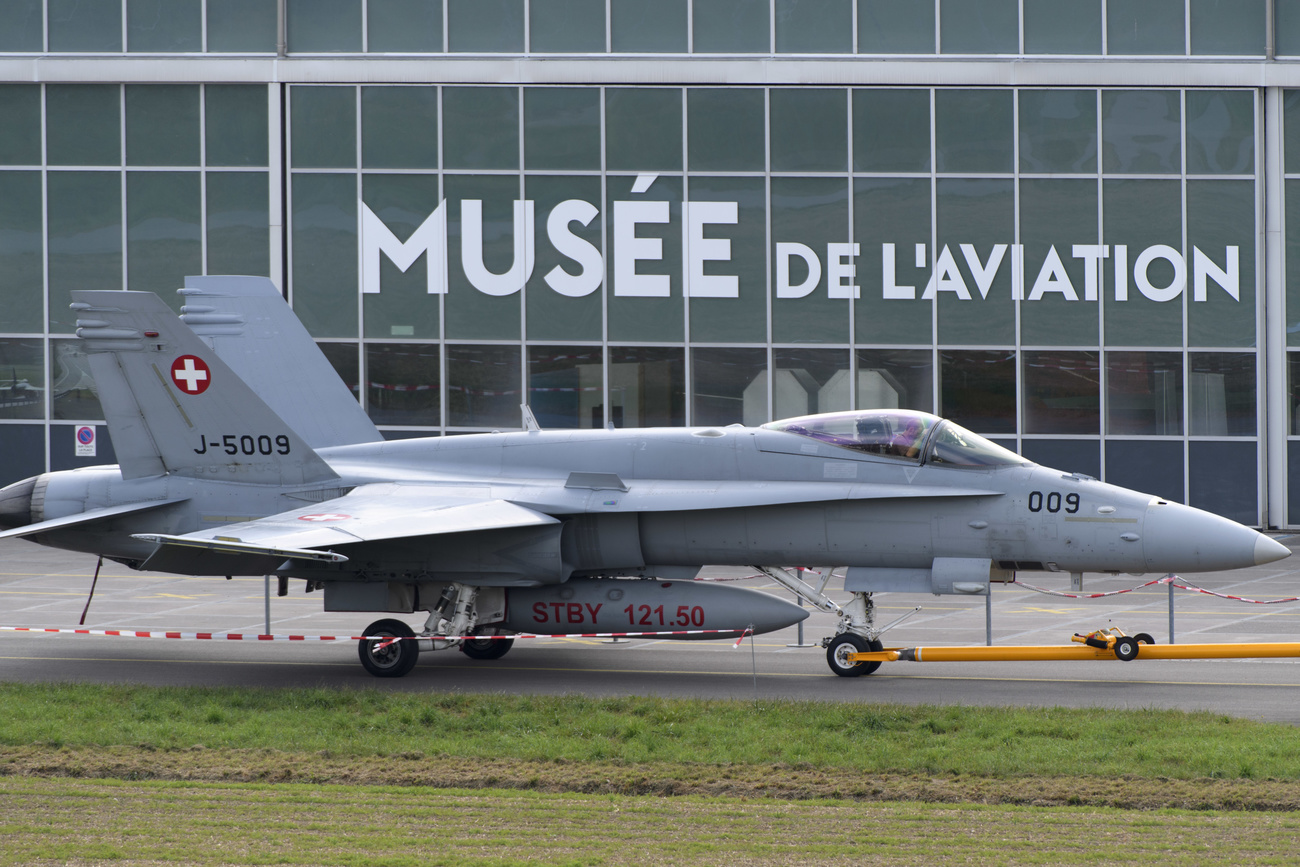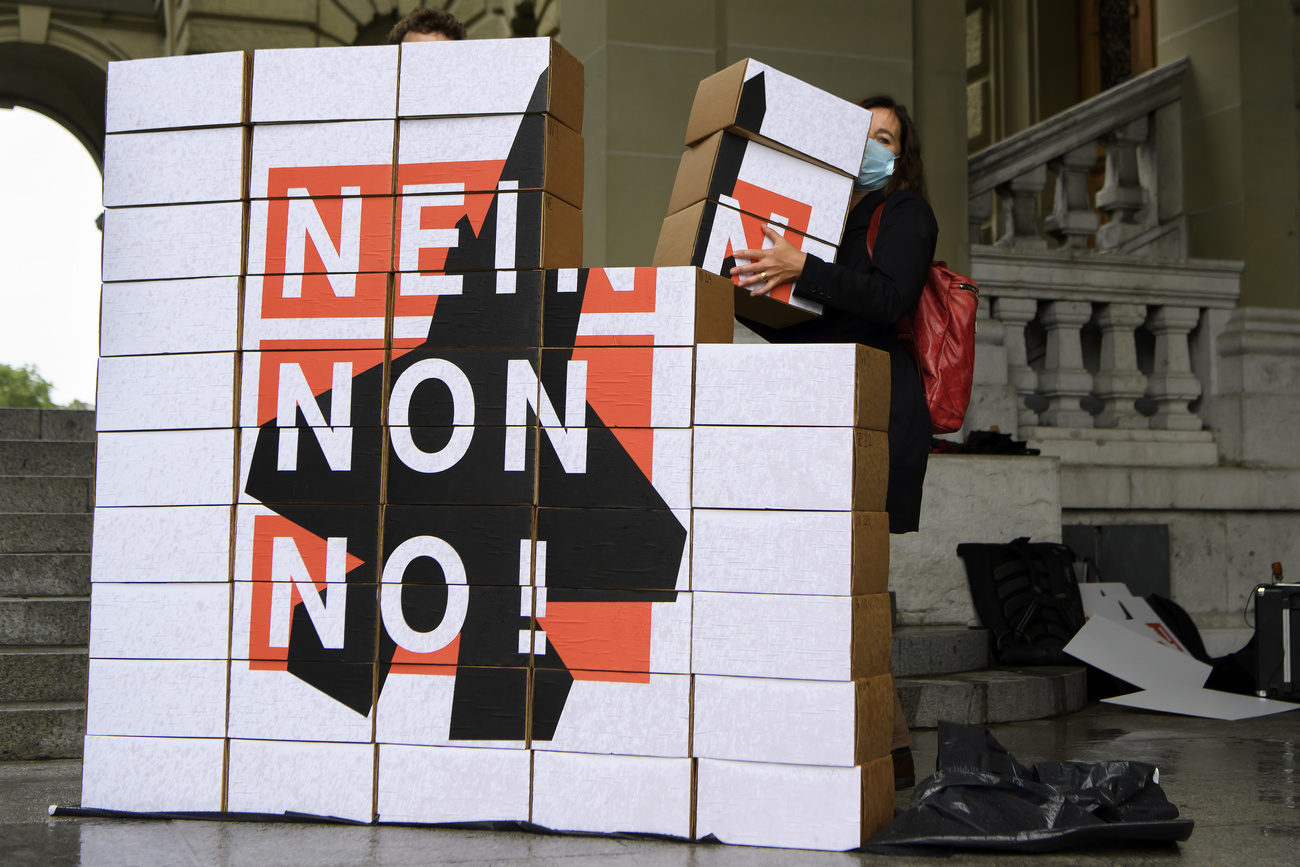Anti-immigration plan fails to inspire voters, poll finds

Ahead of September’s ballot, a right-wing proposal to scrap an immigration deal with the European Union enjoys limited support among Swiss voters, an opinion poll has found.
However, supporters of a parliamentary decision to spend CHF6 billion ($6.6 billion) on new fighter jets for the Swiss air force have a lead of almost 20 percentage points over opponents from the political left.
The survey commissioned by the Swiss Broadcasting Corporation was carried out seven weeks ahead of September 27, when a total of five issues will come to a nationwide vote.
For details see chart below
Political scientist Martina Mousson says it is striking to see how stable and entrenched opinions about the anti-immigration initiative have remained over the past five months.
“This leaves little hope for the campaigners behind the initiative,” says Mousson, project leader at the GfS Bern research institute, which carried out the survey.
She reckons that, barring unforeseen events over the next few weeks, the People’s Party is unlikely to gain much support outside its own grassroots and among fundamental critics of the government.
The poll found that citizens in the majority German-speaking as well as the French-speaking parts of the country intend to reject the initiative at the ballot box. Only the Italian-speaking region of Ticino shows signs that it may come out in favour.
Fear of economic downturn
Mousson says the main reason for the clear lead enjoyed by the initiative’s opponents are concerns that Switzerland’s economic prosperity is at stake if relations with the EU – the country’s main trading partner – are undermined.
She adds that pressure around high levels of immigration has clearly eased compared with the situation in 2014, when Swiss voters approved another People’s Party initiative which called for the introduction of immigration quotas for EU citizens.
It was anger about parliament’s refusal to fully implement the demands of that initiative that spurred the People’s Party to launch a new proposal. But it now faces a broad alliance of all other major political groups, the business community, trade unions, parliament, and the government.
Mousson says the arguments put forward by opponents appear to be convincing citizens better than those who support ending the free movement accord (and most likely six other bilateral accords)
Given the currently rather low number of backers (35%), and other results from the survey, Mousson is sceptical about a sudden swing, but she stops short of calling the vote,.
“At the moment there are no clear indications that the negative trend will be overturned soon,” she says.
Plain sailing
A financial package to buy fighter jets looks set for approval by voters in September, according to Lukas Golder, co-director of GfS Bern.
He says left-wing opponents, who challenged a decision by parliament last December, may gain additional support among younger people and women voters, particularly in French-speaking Switzerland.
But this doesn’t seem enough to repeat a ballot box surprise in 2014, when voters threw out a plan to buy 22 Swedish-built fighter jets in one of the worst democratic defeats for the Swiss Armed Forces.
“Respondents in our poll believe that a strong and independent air force is needed,” Golder says. “It seems that the left lacks really convincing arguments in its campaign,” he adds.
Covid-19 pandemic
A new factor to be reckoned with in the political campaigns ahead of the September 27 vote is the Covid-19 pandemic and the government’s social distancing regulations.
They make public gatherings – a traditional form of targeting the Swiss citizens – much more difficult.
Golder says the restrictions make it generally more difficult for opponents to stage protests and organise events, giving a clear advantage to the government and its positions.
“The coronavirus pandemic has cast a huge shadow, creating insecurity in general for people, notably about their economic situation,” says Golder.
This comes on top of the fact that citizens will have to make up their minds about four other national issues, while in many regions, decisions are expected at cantonal and local levels.

More
How will the pandemic influence Switzerland’s upcoming votes?
Golder also says traditional media – print or mainstream broadcast – have become more relevant while social media and other information channels seem to have lost ground.
Nevertheless, newspapers are still struggling to report broadly on the subject matters and to contribute to the opinion-making process vital to a direct democracy. Covid-19 has forced many papers to cut back and reduce the number of pages per edition, due mainly to a slump in advertising revenue.
It’s not yet obvious to what exact extent supporters and opponents both of the fighter jet acquisition and the immigration curbs will be affected by the pandemic. But there has been plenty of speculation in the past weeks.
The second GfS opinion poll, to be published mid-September, might give a clearer picture.
Pollsters interviewed 29,540 Swiss citizens from all language regions across the country for the first of two nationwide surveys.
The survey is based on online responses as well as telephone interviews, both with fixed line and mobile users, and was carried out from August 3-17.
The margin of error is 2.9%.
The poll was commissioned by the Swiss Broadcasting Corporation (SBC), swissinfo.ch’s parent company, and carried out by the GfS Bern research institute.

In compliance with the JTI standards
More: SWI swissinfo.ch certified by the Journalism Trust Initiative












Join the conversation!